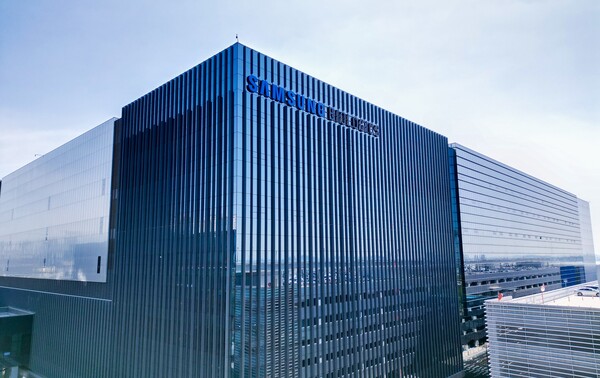Samsung Biologics said it has obtained the "Leadership A-"grade, the second highest of the eight grades, from Carbon Disclosure Project (CDP), a global sustainability assessment organization, for its climate change response efforts in 2023.

The company stressed that it is the first in the domestic biopharmaceutical industry to achieve this rating, marking an advancement from last year's "Management (B)" grade.
Established in the U.K. in 2000, CDP is a non-profit international organization that requests environmental disclosure information from major listed companies worldwide. In 2023, over 23,000 companies participated in CDP.
The CDP assessment is utilized by global pharmaceutical companies, investors, and others to evaluate a company's level of response to climate change. It is recognized as a credible sustainability indicator along with indices like the Dow Jones Sustainability Indices (DJSI). Companies that receive high ratings demonstrate outstanding performance in climate change response strategies, goals, and execution.
Samsung Biologics participated in CDP for the first time in 2021, receiving the second-highest Management grade in its debut evaluation. Maintaining the same grade in 2022, it advanced to the Leadership A- grade in the 2023 evaluation, alongside companies like AstraZeneca, GSK, Johnson & Johnson, and Sanofi.
"This recognition places Samsung Biologics shoulder to shoulder with leading global pharmaceutical companies, acknowledging its excellent capacity to respond to climate change," the company said.
Samsung Biologics has been receiving recognition for its continuous efforts in climate change response, aiming for Net Zero by 2050. Efforts include energy conservation at facilities, transition to renewable energy, participation in global initiatives such as RE100, the Sustainable Markets Initiative (SMI), and the UN Global Compact (UNGC), as well as supporting and managing carbon neutrality in the supply chain.
Continuing activities to reduce greenhouse gas emissions include the installation of solar power generation facilities, replacement of high-efficiency boilers, and implementation of a Factory Energy Monitoring System (FEMS).
Samsung Biologics is also enhancing its supply chain response policies by conducting ESG agreements with suppliers, establishing sustainable product procurement policies, and strengthening supply chain ESG evaluations while expanding support activities for suppliers.
Samsung Biologics, based on its proactive ESG management efforts, including climate change response, has been proving its sustainability performance. It was awarded the Platinum medal in the 2023 ESG evaluation by EcoVadis, a global sustainability assessment organization reserved for the top 1 percent of companies. Additionally, it has been listed on the DJSI World Index for three consecutive years.
"We will continue to strengthen our climate change leadership through continued innovation, such as expanding the transition to renewable energy," Samsung Biologics CEO John Rim said. "We will continue our efforts for sustainable management to earn trust from various stakeholders and contribute to a better future for humanity."
Related articles
- Samsung Biologics partners with LegoChem Biosciences for ADC development
- Samsung Bioepis breaks ₩1 trillion sales mark 12 years after founding
- Samsung Biologics posts over ₩1 trillion annual operating profit in 2023, 1st in Korean pharma
- Korean regulator OKs Samsung Bioepis’ Soliris biosimilar
- Samsung Biologics gets EcoVadis' highest ESG rating
- Samsung Biologics signs ₩381.9 billion contract with UCB
- Samsung Life Science Fund invests in US ADC firm BrickBio
- Brokerage predicts US Biosecure Act could benefit Samsung Biologics
- Samsung Biologics' Q1 sales, operating income hit record high

